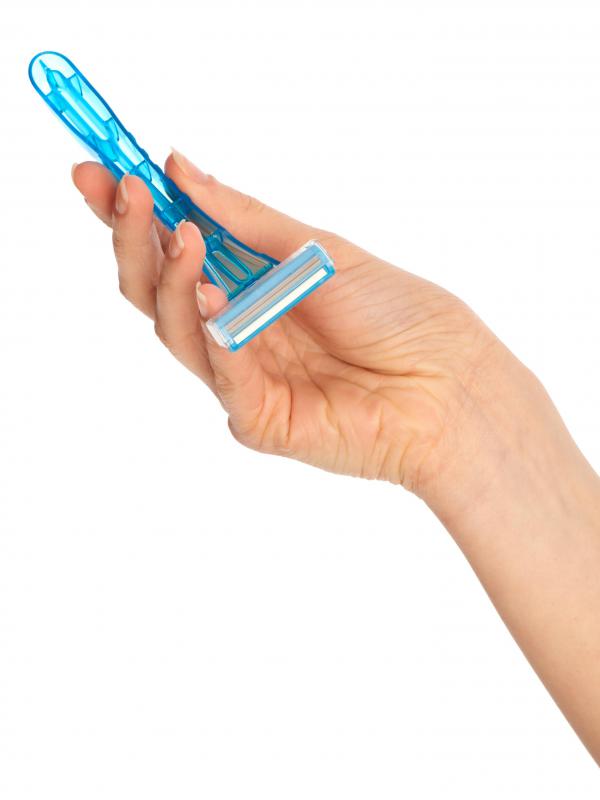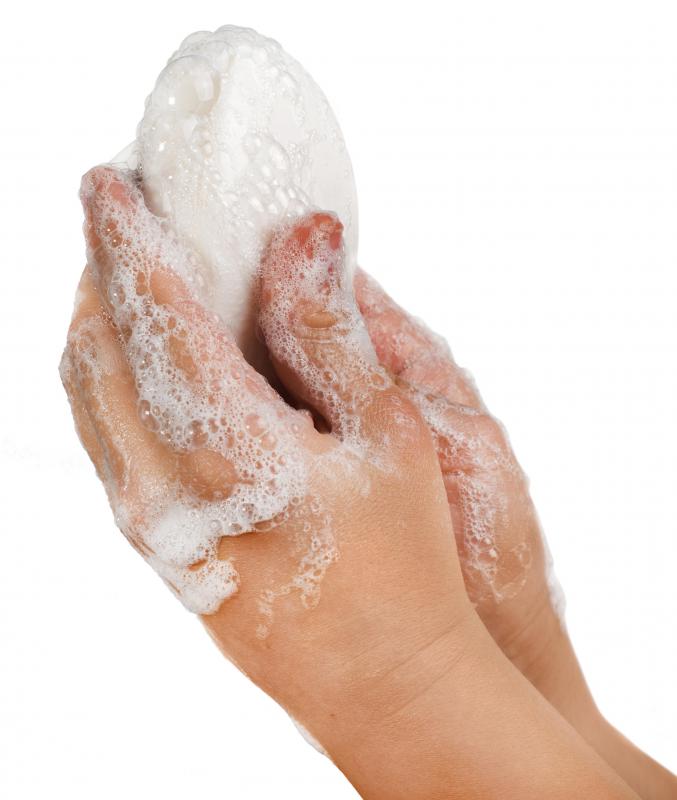At TheHealthBoard, we're committed to delivering accurate, trustworthy information. Our expert-authored content is rigorously fact-checked and sourced from credible authorities. Discover how we uphold the highest standards in providing you with reliable knowledge.
What is the Treatment for Folliculitis?
Treatment for folliculitis includes self care with home remedies, over-the-counter medications and, in some cases, medical treatment. The inflamed hair follicles that characterize folliculitis may itch or sting. Treatment both helps reduce the symptoms of the condition and treats the underlying infection to clear up the irritated red bumps on the skin.
Home treatment is often effective for mild cases. Washing the area with antibacterial soap daily will help keep the infected area clean and also combat the bacteria under the skin that are responsible for the bumps. Applying warm, wet compresses to the affected area for five to ten minutes can help relieve itching and pain. Compresses made with 1 tablespoon of white vinegar to 1-1/3 cups of water (14 ml of vinegar to 240 ml of water) are particularly effective.

Over-the-counter antibacterial creams and ointments are also effective for mild folliculitis. Applying a cream, such as bacitracin, daily to the area will help kill the bacteria that infect hair follicles. Antiseptic washes that contain povidone-iodine can also fight bacteria and prevent the infection from spreading. Shampoos that contain selenium treat folliculitis that manifests on the scalp or beard area.

Shaving areas affected by folliculitis can further irritate the hair follicles and make the condition worse. If the area must be shaved, it is important to gently massage the area with warm water and soap or shaving cream made for sensitive skin. Using a new razor blade each time when shaving areas of folliculitis helps prevent the infection from spreading or getting worse. Moisturizing areas of dry skin with a fragrance-free lotion can help soothe folliculitis and prevent recurrence.

Medical treatment for folliculitis is necessary if the infection is deep or severe, or if it does not clear up with home treatment. A doctor or dermatologist can assess the condition and its cause to determine what treatment method is most likely to clear up the infection. Patients who suffer from folliculitis due to bacterial infections may need to take oral antibiotics. Prescription-strength antibiotic creams can help clear up moderate cases. Antifungal medications are prescribed when the condition results from a fungal skin infection.

Topical or oral corticosteroids are prescribed as a treatment for folliculitis to help reduce swelling and irritation. Corticosteroid treatment is usually reserved for severe cases of folliculitis that do not respond to other medications. Patients should use these medications exactly as directed and discontinue their use as directed by their doctors, generally within ten days.
AS FEATURED ON:
AS FEATURED ON:
















Discussion Comments
Eat garlic. It will help a lot.
@simrin--Have you tried an anti-fungal scalp folliculitis treatment at all?
If the folliculitis is caused by an immune system problem, you might have to take low-dose antibiotics for the long term. That's what my brother is doing. His doctor believes that his folliculitis is a genetic problem and only a low-dose antibiotic or acne medication can keep it under control. So he's on low dose antibiotics and probably will be indefinitely.
You might also want to support your immune system with multi-vitamins and antioxidants. I've heard that vitamin A, vitamin D, omega-3 and zinc is really important for the immune system. So have some blood work done to see if you have a deficiency in any of these. And ask your doctor what he or she would recommend you to take and support your immune system that way.
@simrin-- Hey! I used to have chronic scalp folliculitis too and I know what you're going through. I was on oral antibiotics for months at a time. Just like you, the antibiotics treated my folliculitis but it would return when I stopped taking them.
The apple-cider vinegar home remedy has really helped me a lot. I just rinse my scalp with apple-cider vinegar diluted with water daily. I think it kills the bacteria and keeps it from coming back.
It is something you need to keep doing even when the folliculitis disappears though. I think some people like you and me are just naturally inclined towards this kind of infection. So even after we treat it, we need to maintain it that way too. Apple-cider vinegar is definitely an easy and cheap treatment of folliculitis. Good luck!
I've been dealing with scalp folliculitis for a while now. It's not severe, but it's persistent. It responds to treatment with topical antibiotics but comes right back when I stop using them. I have no idea what to do because I can't keep using antibiotics. That will be more dangerous for me in the long term because it will affect my immunity to other bacteria.
I'm not really the kind of person to rely on home remedies, but I'm willing to give some of these recommendations a go.
Has anyone successfully treated and cured folliculitis with home remedies? What about side effects? Do I need to worry about side effects with any of these remedies? I would love to hear about other people's experiences with them before I try any. Please let me know!
Post your comments